When I wrote yesterday's post, I think I was hung up maybe a little too much on the comparison between book and film, how 'Stalker' (for me) is a stripping away of all the genre tropes from the Strugatskys' novel 'Roadside Picnic'.
Also, the enigmatic qualities of the film appealed to me so strongly that I resisted analysing or probing the film. But as with even the most slippery and ambiguous works of art, there are doorways - or even just hairline cracks - that allow a way in; that allow for a reading, an interpretation, an understanding.
I didn't strive for these things in my review, content to let the mysteries of 'Stalker' swirl around me.
Francisco Gonzalez discussed 'Stalker' as the inaugural review on his blog The Film Connoisseur (a brave and inspired choice of film to kick off a new blog with), and he left a comment on my article which proved a thought-provoking take on the film. I thought it was too good a piece of writing to remain hidden in the comments section, and with Francisco's kind permission, it is printed below:
The way I saw it, the whole film was a metaphor for religion. The Stalker serves as the religious preacher, looking for new members - in this case the two people he is guiding through "the zone".
The Zone to me is religion. The film was an exploration of why people need it, why its there, and why should it be there? Do we really need it to survive? And should it be blown to smithereens? Eliminated forever from society?
All this revealed through the conversations that the characters have, and it's intriguing that one is a writer, one is a philosopher and one is a mathematician.
That last scene, where they are looking at "the room", I guess the room means something different to each of them, one wants to blow it up, the other thinks we need it. Kind of like in 'Solaris' where they were thinking of blowing up the whole place with bombs, I believe it was?
Also, the last shot with the little kid being "different", I thought there was some telekinesis involved there, demonstrating that it's in the future generation's hands to change things...with the power of their minds. That's how I saw it, youth, future generations can move things, change them, including problems that plague our society right now. But then again, maybe it was just the vibrations from the train that was passing by? Or was it? I loved that ambiguity there!
It seems Tarkovsky enjoyed playing with these themes, which in my opinion he also played with in 'Solaris'. The planet that makes people see things...
Francisco's review of 'Stalker' can be read here; it's a good and insightful piece.
Monday, November 09, 2009
Subscribe to:
Post Comments (Atom)
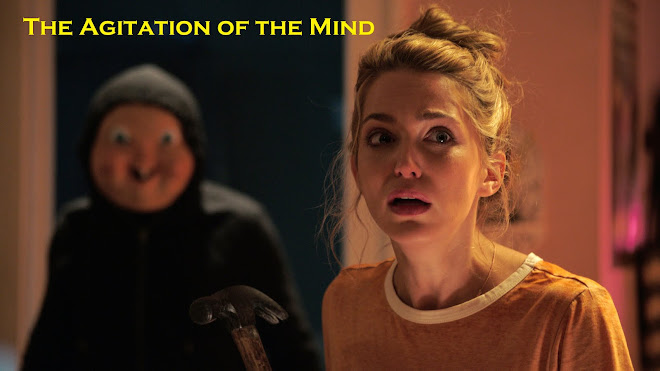

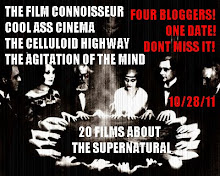
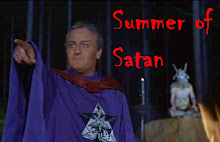
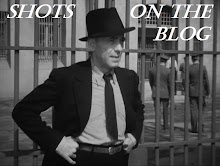











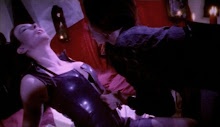





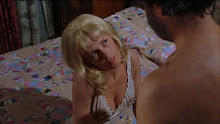









6 comments:
Glad you enjoyed the review Neil! Ive always loved looking into the meaning of films, what they are really trying to say with their images and storyline, Stalker had me glued to it all the way.
Theres a scene where the characters are trying to choose between getting to the room through a short cut, or going the way the Stalker wants to go, and the Stalker is like, you cannot take a short cut, you gotta go this way.
With religions its like that. You can never take the short cut, you gotta go through this whole process to get there. Only problem is that when you get there, when you expect the big answers...all you got is faith, which is believing in what you cant proof.
In Stalker, the characters reach a door. Once there, they cant open it. They dont know whats behind it.
Behind that door, for all we know, there was just an empty room. I actually think that the "not knowing whats behind the door in the room" was actually talking about how when we get down to it, we really dont know if there is a god or not. Its the one huge mystery in life we dont have the answer to.
Just like the characters in the film who never found out whats behind the door.
Tarkovskys films were always so symbolic and thematically heavy!
Thanks again Neil!
I actually prefer the ending of 'Stalker', where it's completely ambiguous about whether they even went into the room and if they did what they found, to the ending of the novel where only the Stalker enters the room, exhausted and badly ill, and falls to his knees and wishes for peace and justice for all. It's a noble sentiment, but it robs the story of its power because it makes the power of the room to grant wishes literal. Tarkovsky handles it better by leaving the room and whatever's in it to the viewer's imagination.
Thanks again for your comments.
I wasnt aware that the film was based in a book.
I got one question for you, in the book, does The Stalkers request become real? Or does the author simply leave it there, with the Stalker wishing this? Do we ever know if his request is granted and if 'the room' actually grants wishes?
If his wishes do come true, then the authors purpose was to show that 'the rooms' powers are true and it does solve all your problems.
Apparently, Starkosky wanted to go down a more ambiguous road, he wanted to leave it up to us. But according to everyones faces and morale after they leave the zone (when they reunite in that depressing looking bar) I dont think their wishes ever came true, and I dont think they ever went into the room. They were if I remember correctly, dissapointed somewhat.
In the book, the Stalker enters the room on the very last page and makes his plea for peace and justice. And that's where the novel ends.
Strange, almost supernatural, things happen the closer he gets to the room, which leave him weak and debilitated. I took this to mean that there are special powers or forces at work in The Zone, although it's still a matter of speculation whether the room does grant wishes or not.
I still prefer the film's ending. It makes the The Zone and the room personal to each of the characters - the Stalker, the writer, the mathematician - and therefore personal to the viewer. Because the ending is enigmatic (like you say, they could have entered the room and been disappointed and nothing granted to them), you can bring your own ideas and interpretations to the film.
So if in the book there are apparently supernatural things that happen to the stalker, then it might mean that the book leans more towards the idea that the myths presented to us by religion are true.
While the movie leaves all up to interpretation, maybe it is, and maybe it isnt.
As a side note, its so sad to learn that Tarkovsky and part of the cast and crew died after making this movie because of exposing themselves to the deadly toxins present in the abandoned factory they shot in..
I'm still not sure how deep the religious subtext in the book goes. Has belief in the room replaced belief in God? Or is it a metaphor?
Most of the characters in the book attempt to breach the room to make a selfish wish, but the Stalker ultimately wishes something for the good of all mankind. You could read this as making him an almost Christ-like figure in his own right. The authors - perhaps wisely - leave a lot for the readers to work out for themselves.
Post a Comment